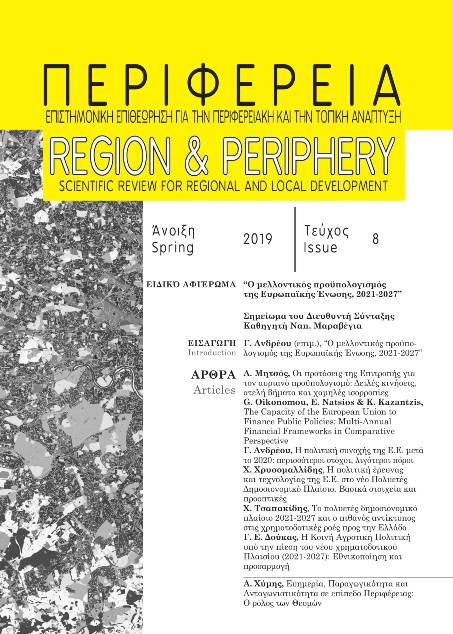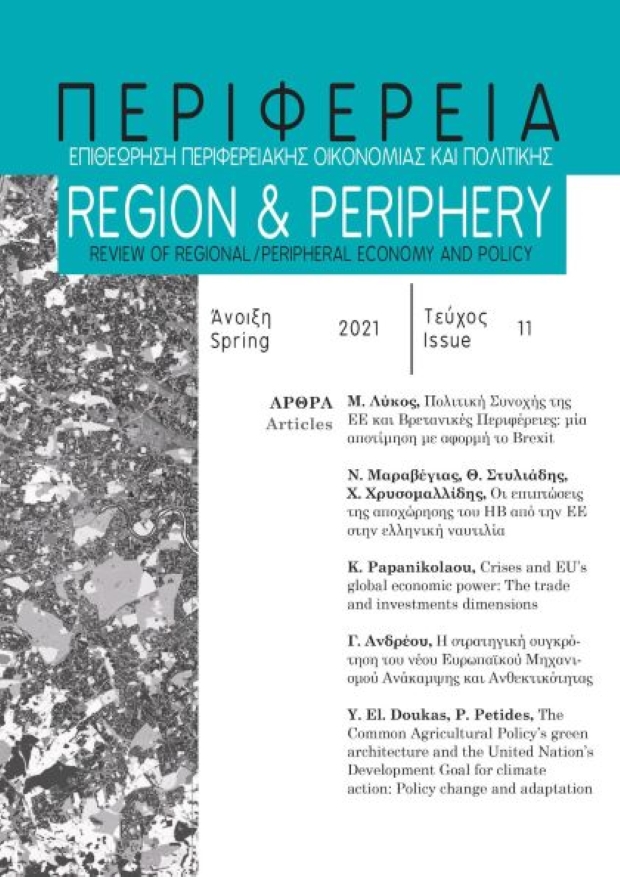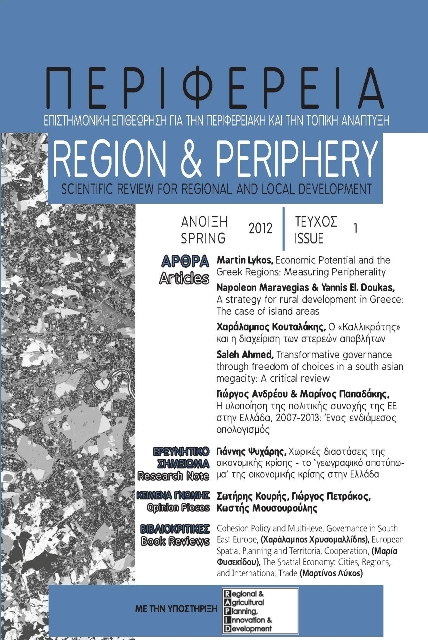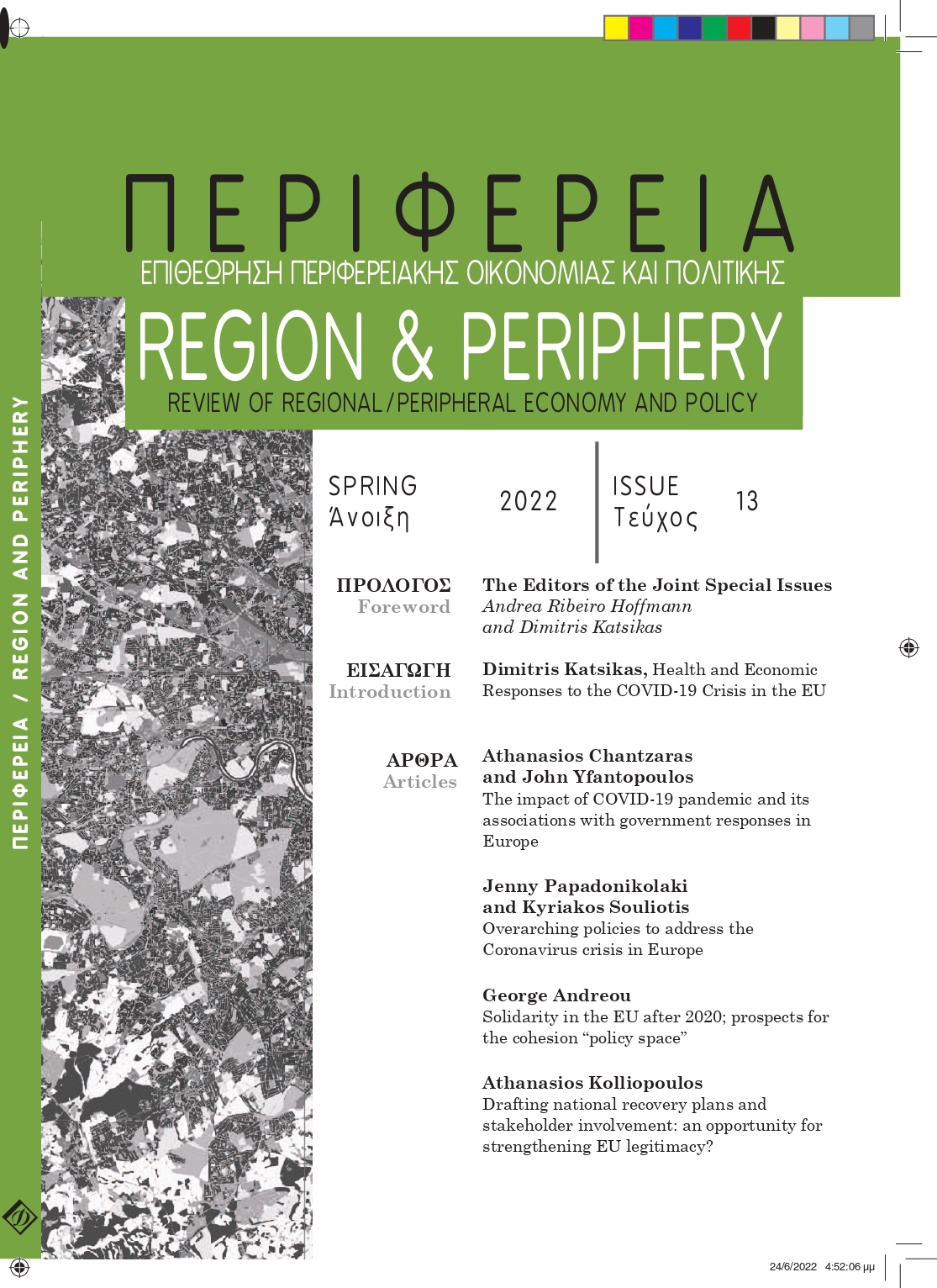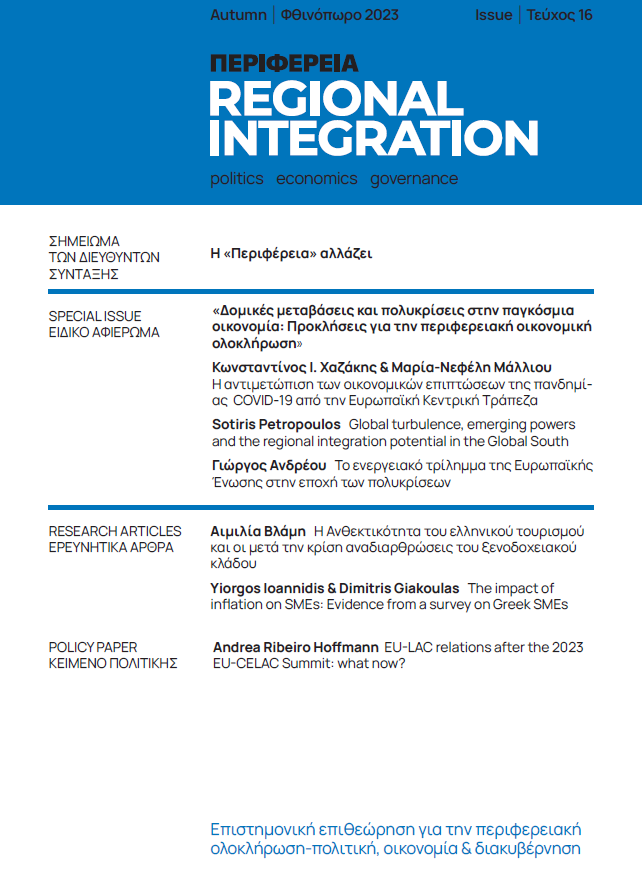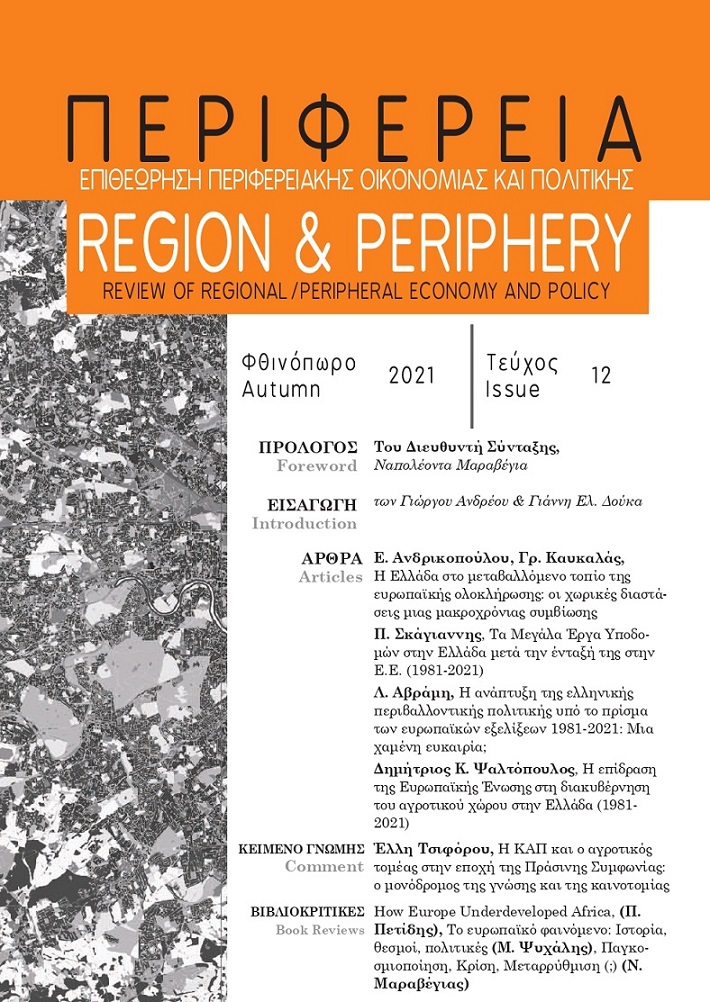EU Cohesion Policy after 2020: More goals, fewer resources
Abstract
Drawing on historical institutionalism, the paper seeks to compare the imprint of existing EU cohesion policy with the imprint formed on the basis of the policy reform proposals for the 2021-2027 programming period. It is deduced that the proposed changes are incremental in nature, seek to perpetuate the subjection of the goal of cohesion to the “new economic governance” and burden cohesion policy with additional general objectives. In addition, the distributive
dimension of the proposals is problematic, as drastic reductions of funds are envisaged for 10 out of the 12 Central and Eastern European member states. The final conclusion is that: a) the proposed distribution of funds is politically
unfeasible and b) the proposed reforms, while designed to limit complexity at the level of policy means, do not suffi ciently address “goal congestion” and do not event attempt to resolve the compatibility problem between the goal of cohesion – i.e. the reduction of territorial disparities – and the EU’s strategic ambitions.
Article Details
- How to Cite
-
Andreou, G. (2019). EU Cohesion Policy after 2020: More goals, fewer resources. Perifereia | Regional Integration: Politics, Economics, Governance, (8), 49–76. https://doi.org/10.12681/rp.21153
- Section
- Research Articles

This work is licensed under a Creative Commons Attribution-NonCommercial 4.0 International License.
Authors who publish with this journal agree to the following terms:
· Authors retain copyright and grant the journal right of first publication with the work simultaneously licensed under a Creative Commons Attribution Non-Commercial License that allows others to share the work with an acknowledgement of the work's authorship and initial publication in this journal.
· Authors are able to enter into separate, additional contractual arrangements for the non-exclusive distribution of the journal's published version of the work (e.g. post it to an institutional repository or publish it in a book), with an acknowledgement of its initial publication in this journal.
· Authors are permitted and encouraged to post their work online (preferably in institutional repositories or on their website) prior to and during the submission process, as it can lead to productive exchanges, as well as earlier and greater citation of published work.

